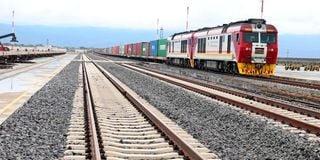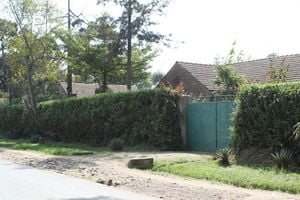Lower rates, imports cut Sh8bn from railway levy

Revenue from the Railway Development Levy (RDL) dropped by Sh7.86 billion in the financial year ending June after a cut on its rate and underperformance of imports due to a weaker Kenya shilling.
Data from National Treasury shows that the government received Sh32.024 billion from the levy, the lowest since June 2021.
The collection represented a drop of nearly a fifth compared to the Sh39.89 billion the government netted from RDL in the financial year ending June 2023.
Collected by the Kenya Revenue Authority, the RDL is slapped on all imports. The funds collected from RDL were to help with the construction of the standard gauge railway (SGR), which was to run from Mombasa to Malaba.
The reduced collections hampered budget implementation, in a year when the government was beset by liquidity challenges leading to delays in payment of salaries.
Underperformance also coincided with a period when imports of aircraft, their spares, liquefied petroleum gas (LPG) and goods for official use by the military and police were exempted from the levy.
Hurting collections
The levy was also cut to 1.5 per cent from two per cent, hurting collections. The shelved Finance Bill 2024 had proposed to add the National Intelligence Service to the entities exempted from RDL. RDL is among fees collected at the points of entry besides the Import Declaration Fee (IDF), which stands at 2.5 per cent of the value of the goods, having been slashed from the previous 3.5 per cent.
The reduction in the levies, which were introduced by the former administration, has eased the cost of consumer and capital goods including imports of raw materials. A lower collection from RDL saw the Treasury backtrack on the reduction, with MPs proposing to increase it to 2.5 per cent as part of the amendments to the Finance Bill 2024, which was subsequently shelved in the wake of youth-led protests.
RDL was introduced in the 2013 Budget by the then Finance Cabinet Secretary Henry Rotich, who said the fees collected would be used to fund SGR whose construction started in 2014.
Initially, RDL was set at 1.5 per cent of the value of imports with the Treasury targeting at least Sh15 billion in the first year of the levy. It was raised in the subsequent budgets.
The collection of RDL might have been hampered by a reduction in imported goods due to a devaluation of the shilling, which meant that imported goods became expensive.





